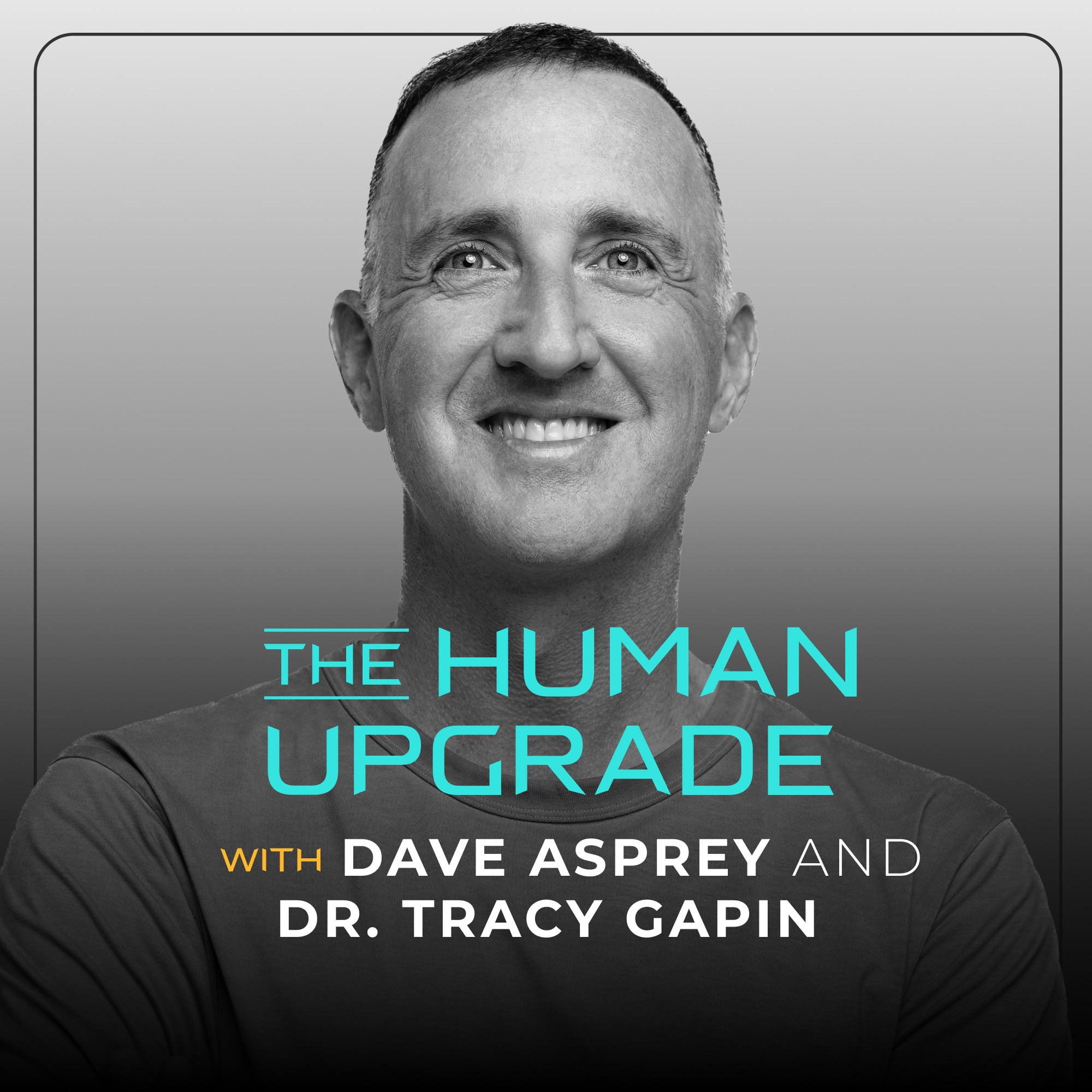
We’re having a revolution in medicine and biology. We’re at the point where the medical community is starting to redefine aging.
We used to think about growing older almost like an inevitable disease. Our approach to aging healthily was to study the complications and declines in health that come with increasing years around the sun, and then try to find treatments for those, or minimize the risk factors. That strategy is reactive and passive.
But functional and integrative physicians have sought more—and we’re finding it.
Pioneering scientists and medical researchers are leading a shift in the understanding of aging from one focused on treating disease to one that focuses on preserving health and enhancing the body’s own capacity to heal.
We are learning to use principles of preventive medicine to stay healthy and well.
The body has a drive towards balance, especially at the cellular level. Harnessing what we know about cell functions allows us to prevent their breakdown, regardless of the number of candles on our birthday cake.
That effectively means this: we can keep ourselves young.
Peptide therapy is one way that we’re starting to do that. Some forward-looking physicians and medical practitioners are now using peptides as a way to reverse the cellular clock in your body and enable it to function like it used to when you were younger.
One of the exciting peptides in this field is CJC-1295.
What is CJC-1295?
CJC-1295 is the creative (or not!) name that scientists have assigned to a particular synthetic peptide.
“Synthetic peptide” just means that it’s a chain of amino acids (the building blocks of proteins) that was created by scientists. It was made to chemically resemble a hormone that your body already makes called growth hormone-releasing hormone (GHRH). GHRH is part of your body’s system to regulate the production and release of growth hormone (GH).
Why growth hormone matters
Growth hormone is essential. It’s involved in a ton of important bodily processes, especially those that support the creation and repair of tissue. For example, it’s involved in muscle gains after a workout, rejuvenating skin cells, repairing injured tissues, improving immune system functioning, and much more.
Basically, when new cells are being created, growth hormone is part of that process.
Most people produce lots of growth hormone when they’re young—it’s an important part of children’s development into adulthood. And production of growth hormone continues to be high going into young adulthood.
Growth hormone declines with age
But—surprise—it starts to decline with age. Growth hormone levels in the blood are much lower in older adults than they are in young adults. That’s part of the reason that your body takes longer to recover as you get older: it doesn’t have the hormonal support it needs to repair and heal itself.
Increasing growth hormone can be a powerful part of an anti-aging therapy strategy.
But how can you increase GH levels?
While it’s possible to supplement growth hormone directly, it’s not ideal. Directly supplementing GH can lead to some nasty side effects.
Instead, it’s just as effective—and easier on the body—to supplement the other chemicals that regulate growth hormone.
Growth hormone secretagogues
That’s where “growth hormone secretagogues” come in. Growth hormone secretagogues make up a group of peptides that stimulate the production and secretion of growth hormone.
That means that they stimulate the body to produce and secrete its own growth hormone. That turns out to be a lot easier on your body.
What does CJC-1295 do?
CJC-1295 is one of those growth hormone secretagogues.
What it does is mimic your body’s naturally made growth hormone-releasing hormone. By doing that, CJC-1295 is able to bind to the same receptors that GHRH does. And so it has the same effect: it tells your body to produce more growth hormone.
What is Ipamorelin?
Ipamorelin is another growth hormone secretagogue. The end result of Ipamorelin is the same as CJC-1295: it increases the GH that’s available in your blood and that makes it to cells.
But Ipamorelin works slightly differently from CJC-1295.
The chemistry is slightly complicated, but very briefly, Ipamorelin falls into a different category called growth hormone-releasing peptides (GHRPs). GHRPs mimic a substance your body makes called Ghrelin, which is also involved in the regulation of growth hormone.
Ghrelin helps turn down something called somatostatin—an inhibitor of GH. So Ghrelin basically creates the right conditions for growth hormone to be secreted.
What does Ipamorelin do?
Ipamorelin mimics Ghrelin. Because it looks the same to your body as Ghrelin, it has the same effect of turning down somatostatin and encouraging your body to secrete more GH.
CJC-1295 and Ipamorelin have complementary effects
GHRHs, like CJC-1295, and GHRPs, like Ipamorelin, work together.
CJC-1295 tells your body to produce more GH. Then, Ipamorelin creates an environment where GH can easily be secreted.
Together, CJC-1295 and Ipamorelin pack a one-two punch for upping your GH levels and supporting your body to create new tissue.
What are the potential benefits of Ipamorelin and CJC-1295?
Great, so CJC-1295 and Ipamorelin can work together to increase the amount of growth hormone in your blood. We know that they both really do increase GH, and this helps your cells get what they need to function properly, repair themselves, and create new, healthy cells.
But what does that actually mean for you?
What are the potential health benefits that you would actually notice?
First, I should make it clear that the research is still being done. We don’t yet thoroughly understand all of the effects of either Ipamorelin or CJC-1295. The results look promising, but we still need to do more to gain a comprehensive understanding.
Still, based on the existing research, there are several potential benefits to your health that you’ll be able to notice.
Faster muscle growth

Higher levels of growth hormone in the blood make it easier for your body to synthesize proteins and muscle fibers. That means CJC-1295 and Ipamorelin support muscle building: they make it easier for you to gain muscle mass.
Indeed, several studies have found that higher GH levels in the blood lead to significant muscle gains and greater strength. That’s part of the reason that CJC-1295 and Ipamorelin are so popular in bodybuilding communities.
Fat burning
Another benefit of the higher GH levels that come from growth hormone secretagogues is that they tend to spur on higher metabolism. The bigger the metabolism “fire,” the more fat gets burned.
Of course, neither CJC-1295 nor any other peptide is a magic weight-loss solution. It takes some effort to lose weight: you have to exercise, eat a reasonably healthy diet, and more. But helping your cells get what they need to actually burn the fat can certainly help.
Younger-looking skin
You already know that age takes a toll on the skin. What’s happening is that the collagen in the skin is breaking down, and is not being replaced. That makes the skin less elastic and thinner. And that leads to wrinkles.
The formation and maintenance of collagen rely on growth hormone. And it turns out that increasing the amount of growth hormone that’s available in the blood makes it easier for the body to replace collagen. The result is younger-looking skin.
Improved sleep

Sleep and growth hormone are linked.
Much of your body’s growth hormone is secreted while you sleep. That makes sense since sleep is when your body does the most repair of tissue. If you think your muscles grow in the gym, you’re wrong: the gym may initiate the growth, but that growth happens when you sleep.
But it turns out that it goes the other way, too: CJC-1295 appears to improve sleep as well. And better sleep means better health and general bodily functioning.
Are there side effects of CJC-1295?
Again, it’s important to stress that we’re still in the early days of understanding exactly what effects peptides can have on the body. In general, they appear to be safe—partly because rather than adding new substances or chemicals, our bodies already use peptides to communicate. So they’re typically well-tolerated.
The studies that do exist on CJC-1295 suggest that it’s generally safe, well-tolerated, and has minimal side effects.
Still, some side effects have been noted. These include:
- dizziness
- headache
- nausea
- flu-like symptoms
- hives
- increased heart rate
- flushing
- hyperactivity
- redness and tenderness at injection site
- difficulty swallowing
Possible adverse effects are the reason that all peptide therapies should be conducted under the supervision of a qualified physician. A doctor that specializes in lifestyle medicine can help you ensure that any peptide doses are safe, appropriate for your particular biochemistry, and help you minimize unintended side effects.

Peptide Therapy can be powerful
As far as we’ve come in modern medicine, we’ve still got a long way to go.
The medical community is really just now beginning to see the vast potential of peptide therapies in preserving health and regular functioning as we get older.
But the promise is there.
CJC-1295 is just one of a number of peptides that—under the proper medical guidance—could be a useful addition to your personalized medicine and health regime.
Conclusion
As more studies reveal their health benefits beyond weight loss, the known benefits of peptides are worth acknowledging. Peptides and peptide therapy are cutting-edge tools. You can use them to optimize your health, slow the aging process, and reduce inflammation. Learning new ways to target and use peptides, polypeptides and proteins helps you move away from disease and towards better health.
If you’re interested in radically upgrading your health, you’ll want to keep a close eye on the power of peptides and consider adding these therapies to your regimen. After all, when it comes to living a better life for a longer span of time, we’re looking at brand new ways to do just that – and the sky’s the limit.
The best place to start if you want a hormonal optimization or peptide program is by seeing a physician first. Have a doctor draw your blood and evaluate whether you are a candidate for therapy.
Gapin Institute is currently accepting new clients and offers a comprehensive evaluation, blood test and state-of-the-art screening. If you are tired of being tired… or you have tried everything to lose that unwanted weight but nothing seems to be working, our Peptide therapy might be the piece to the puzzle that you are missing. Call us today to schedule your consultation. (941) 444-1441.
You’ll get access to a genetic-based report and analysis, along with a private consultation that will put you on track to your ultimate health.
With the Male 2.0 Method, I test your DNA, interpret the results, and create a customized strategy just for you. This plan is specific to YOUR individual genes and lifestyle. It will improve every area of your life, from your health and professional productivity to your overall longevity and total wellbeing. Male 2.0 gives you the actionable tools you need right now. It reveals what you need to customize and design your future limitless self.
Schedule a consultation to learn how peptides can help YOU.
Ready to take the next steps?
Schedule a Call
 In Male 2.0™, Dr. Tracy Gapin has turned everything we once thought we knew about men’s health and performance upside down. The old model of how to be “a man” is broken. A man who works himself to death. Unfortunately, a man who tries to NOT get sick but isn’t really healthy either. And a man who takes a pill for every ill but is never really cured. That was Male 1.0. Now, imagine being THE MAN ─ owning your performance in the bedroom, the weight room, and the boardroom. Living a fully optimized life. Becoming limitless. This is Male 2.0!
In Male 2.0™, Dr. Tracy Gapin has turned everything we once thought we knew about men’s health and performance upside down. The old model of how to be “a man” is broken. A man who works himself to death. Unfortunately, a man who tries to NOT get sick but isn’t really healthy either. And a man who takes a pill for every ill but is never really cured. That was Male 1.0. Now, imagine being THE MAN ─ owning your performance in the bedroom, the weight room, and the boardroom. Living a fully optimized life. Becoming limitless. This is Male 2.0!
Tracy Gapin, MD, FACS is a board-certified Urologist, world renowned Men’s Health & Performance Expert, Author, and Professional Speaker. Using state-of-the-art biometric monitoring, nutrition and lifestyle intervention, Dr. Gapin coaches Fortune 500 executives and evolutionary leaders of business, sports medicine, and high performance. He specializes in cutting-edge precision medicine with an emphasis on epigenetics, providing men with a personalized path to optimizing health & performance. www.GapinInstitute.com
Want more tips to optimize your health? Listen to the latest podcasts. Click HERE
References
Bartke, A. (2019). Growth hormone and aging: updated review. The World Journal of Men’s Health, 37(1), 19-30.
Florini, J. R. (1987). Hormonal control of muscle growth. Muscle & Nerve: Official Journal of the American Association of Electrodiagnostic Medicine, 10(7), 577-598.
Raun, K, Hansen, B., Johansen, N., Thogersen, H, Madsen, K, Ankersen, M, & Andersen, P. (1998). Ipamorelin, the first selective growth hormone secretagogue. European Journal of Endocrinology. 139 (5): 552–561.
Seeds, W. (2020). Peptide protocols, volume 1. Seeds scientific performance research.
Teichman, S. L., Neale, A., Lawrence, B., Gagnon, C., Castaigne, J. P., & Frohman, L. A. (2006). Prolonged stimulation of growth hormone (GH) and insulin-like growth factor I secretion by CJC-1295, a long-acting analog of GH-releasing hormone, in healthy adults. The Journal of Clinical Endocrinology & Metabolism, 91(3), 799-805.






